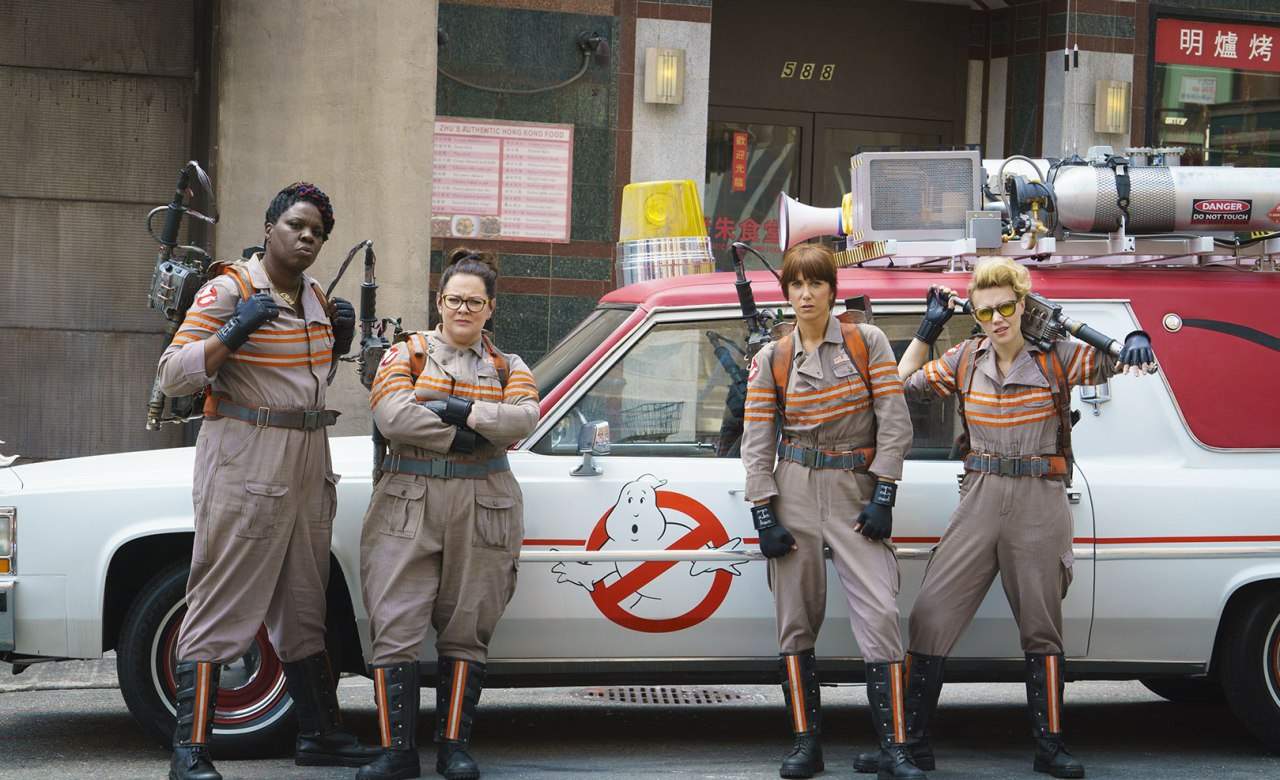Ghostbusters
It's a reboot, not a remake, and its four new leads are fantastic.
Overview
Only idiots pre-judge films. Trailers are increasingly so misleading that the only true test of a movie is when the lights dim and the titles roll.
And yes, idiots pre-judged this film.
From the moment it was announced, so-called fanboys declared the female-led Ghostbusters a piece of feminist propaganda – helpfully allowing us to identify precisely who to unfollow on social media.
The next level of premature opposition came from those who watched the trailers and deduced that this was to be the unfunniest film of all time. OF. ALL. TIME.
If there was to be any merit given to the Ghostbusters pre-haters, it came in the form of the scepticism over reboots in general. The original Ghostbusters was made in 1984, yet there's little beyond the giant hair of Harold Ramis and Sigourney Weaver to make it feel dated – a factor that contributes heavily to its re-watchability. Again, though, the same could be said for Tim Burton's Batman (1989), which only sixteen years later would be spectacularly reimagined by Christopher Nolan in Batman Begins.
The key word, of course, is 'reboot', which – unlike remakes – have licence to edit the story, characters and setting of the original for a whole new audience. Paul Feig's Ghostbusters is unreservedly a reboot. Indeed, it bears so little resemblance to the first film that comparisons are, by and large, pointless. Beyond the theme song, name and general busting of ghosts, this is a new film for a new generation, led by four comedic heavyweights in their absolute prime.
Kristen Wiig, Melissa McCarthy, Kate McKinnon and Leslie Jones are a powerhouse ensemble, embodying four distinctly new and wonderfully defined characters. Wiig's uptight academic with a zero-point flirtation game bounces perfectly off McCarthy's acerbic renegade scientist, while McKinnon's genius inventor is so absurdly odd that only Jones's streetwise Patty could keep the balance in check. They're a courageous and capable collection of heroes supported by an amusing turn from Chris Hemsworth as the team's air-head secretary. The only time gender is ever even touched upon is in a nod to those internet fanboys, with Wiig reading aloud a YouTube comment that declares "ain't no bitches gonna hunt no ghosts".
To suggest that this film's shortcomings have anything to do with its leads being women is so plainly dim as to not even warrant comment. After all, let's remember that just five years ago Feig, Wiig and McCarthy delivered the funniest film of the year in Bridesmaids. No, where Ghostbusters unfortunately falls short is in its story – and it's here that comparisons to the original are unavoidable. The original Ghostbusters was a deceptively complex story masquerading as a simple one, with multiple vignettes that not just cleverly, but critically, came together at the film's climactic crisis point. EPA intervention, an overloaded containment unit, bureaucratic interference and the seemingly-irrelevant lives of several apartment dwelling strangers all suddenly merged with both the Ghostbusters' own story and the ever-growing menace from the opening scene in a spectacular (and genuinely spooky) explosion of paranormal activity.
By contrast, Feig's Ghostbusters is a disappointingly simple film striving ever so hard to seem more complex. Everything that happens on the supernatural front is the result of a single, poorly-defined human villain whose motivations for bringing about the apocalypse are nothing more than that he was bullied as a child. Compare that with Dan Aykroyd and Ernie Hudson in the original film as they considered, with genuine trepidation, the possibility that Judgment Day was truly upon them. Their fear became ours, and that combination of bona fide supernatural horror with outstanding humour was what made it one of the most successful and enduring comedies of all time.
That's what's so noticeably absent in this reboot: the laughs aren't nearly as frequent as you'd expect, and the scary stuff simply isn't. Yes, there are some spectacularly funny moments, with Jones's debut outing as a Ghostbuster during a metal concert being the standout. Still, for a cast of this calibre, you're right to expect more. As for the ghosts, they scarcely feature until the effects-laden finale, one that's over as quickly as it begins.
All in all, this is not a film that's going to destroy your childhood like so many clairvoyant haters suggested. Sadly, it's not quite a home-run either. The film's greatest strength, by far, is its cast. The four leads compliment each other magnificently and there's no scene-stealing; each has her moment in the spotlight, yet knows when to let the others shine. The post-credits scene, too, offers a tantalising hint at what the sequel might concern itself with. Here's hoping it happens sooner rather than later. Feig's Ghostbusters is not a particularly memorable film, but it's an excellent step in the right direction and an exciting glimpse of what might come next.





